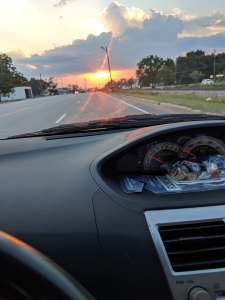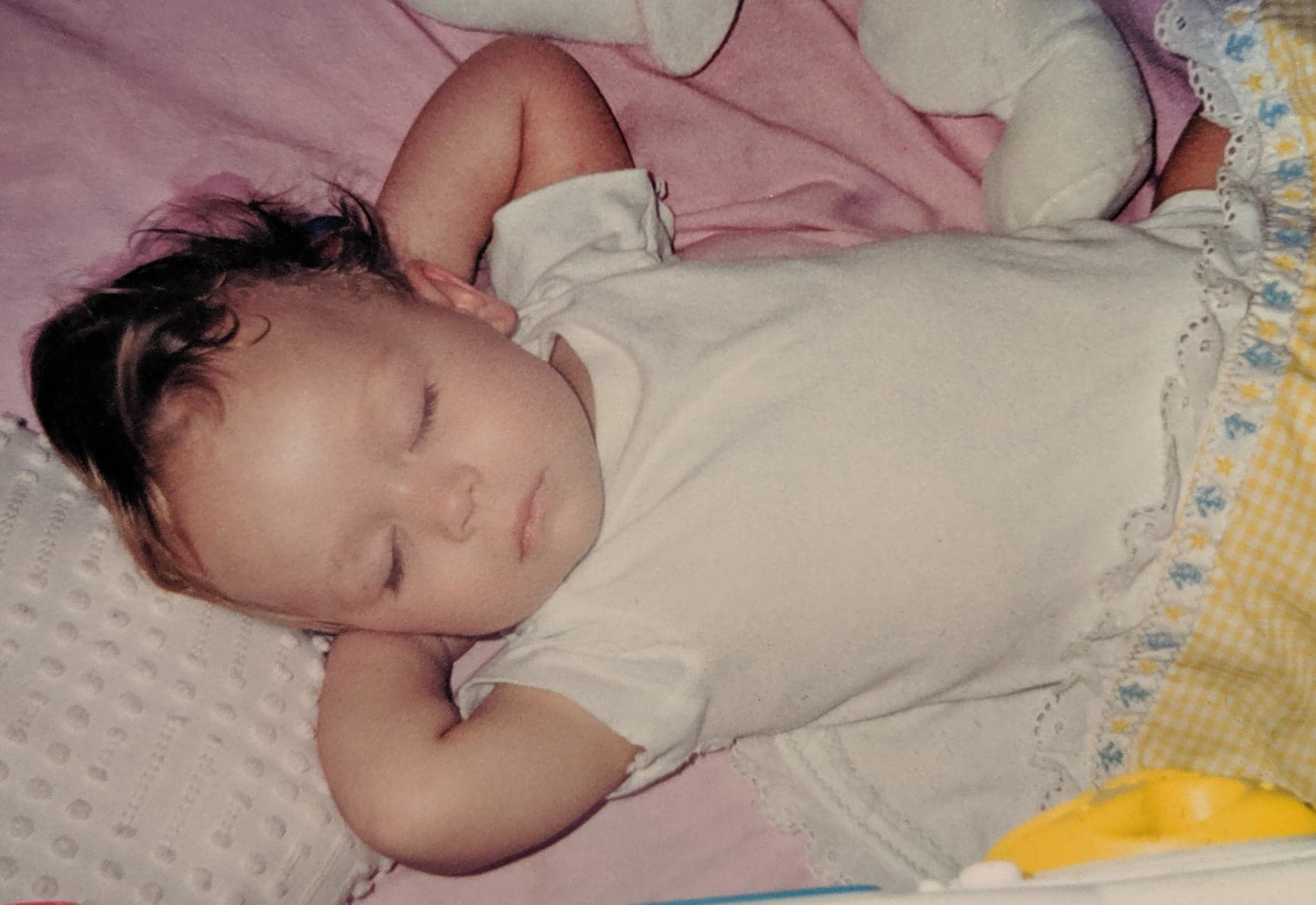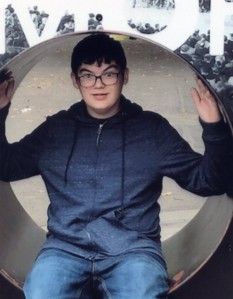
It was an incredibly difficult semester for me–in just 55 days, my husband underwent two heart surgeries, and my father died by suicide. And 87 high school students watched me endure it all.
I could not have done so if they were not wonderful–and they all were, truly–but I particularly appreciated my first block.
Because they were a small class of twelve, I initially joked about calling them “the disciples” and getting them t-shirts, but then we grew by two. They were sleepy teenagers who, at 8:15 a.m., would rather have been in their beds than reading about the surly Greek princess Antigone or contemplating Shakespearean sonnets. They were not apathetic, but they certainly weren’t lively, and their passive compliance allowed me to start each day in a low gear, saving my energy for the more taxing classes ahead. They were also helpful and kind–sensing my heartbreak, a few came in each morning and asked if I needed anything done, and then they did those things. They made my mornings better, which made my days better–allowing me to survivemy trauma and also do my job.
Nine years ago, when I first came to the title one public high school where I now teach, my primary outreach was to listless, visionless boys. I am not an optimistic person (thus the title of this blog), nor am I a cheerleader (if I say anything remotely enthusiastic, it sounds fake, and teenagers hate fake). What I am is a plodder, a trudger, a goer-oner, and I try to get my kids–particularly those enduring trauma–to also continue to walk. To try to find their way “up, out, and over.”
About seven years ago, entirely by accident, I wrote my first life-changing Post-It note. I took a kid, a huge fellow, out in the hall, and I told him, “Listen, you’re going to hate yourself at 45 if you don’t get it together now and quit acting like this.” And, still irritated when we went back in the classroom, I wrote that on a Post-It note and handed it to him.
Years later, when he was a senior, days before graduation, the same young man came up to me, stood with me outside my classroom’s back door, looked at the sky and offered, “You know that Post-It note you wrote me? I hung it on my bedroom wall, and I looked at it every day.”
I was dumbfounded. He just chuckled.
After his confession, other students said, “Yeah, I kept mine.” They laughed at me, too–an English teacher who didn’t know the power of words.
A few years ago, I had a class that was wild–not just one block, but the entire group. Sophomores are challenging to teach because the kids start driving and “feel grown.” With those first freedoms, they are sometimes reckless.
It gets scary if you have a front-row seat. Scarier still if you are powerless, as I was.
They were imploding, these sixteen-year-olds with their still-developing frontal lobes, and I spent my weekends worried and praying that I would see them all on Monday.
Finally, after learning of one weekend’s harrowing misadventures, I went to the school on a Sunday afternoon, gridded out some rough boxes in Word, and typed something like, “Make wise decisions because I love you.” I angled the text, handwrote a crude heart around it, and signed “Mrs. G” with a small heart beside it. I printed out thirty on pink paper and taped the hearts down with clear strapping tape, so they could be there all year. I wanted the kids to remember, daily, that they mattered.
That Monday morning, the kids came in, saw the hot pink hearts dotting the room, and immediately had questions. I explained that I thought their behavior was really scary and we had one of those chats that are the hallmarks of my classroom–life is long; decisions matter; don’t break your mother’s heart; don’t let the boy you are now destroy the man you could become.
That day, when the kids got up to go, more than half of the hearts were gone, too. I asked one of the stragglers, “Where did all the hearts go?”
“Oh, we took them . . . because we wanted them.”
That night, I made ninety more hearts.
Years later, I saw one of my macho young men in the hall, now a self-assured senior. I told him I was proud of him, and we shared a laugh about how terrible they all were at sixteen–before they grew up a little.
With a grin, he said, “Hey, Mrs. G, look,” and unzipped a small jacket pocket just above his heart. He pulled out a weathered piece of paper, unfolded it, and showed me. It was my hot pink heart.
“I take it everywhere,” he said. He folded it neatly, zipped his pocket up, patted it twice and sauntered away smiling.
I sat at my desk last Friday, my last Friday morning with these fourteen teenagers who had made my semester so smooth, had ensured that one thing in my life went predictably well.
I looked at them in their circle, and I was so grateful. To each of them.
I asked them, “Who needs a love note?” Several hands went up immediately, a few hands shyly, later.
As they worked on exam review, I wrote them little notes on artist’s trading cards I bought at Hobby Lobby. Just a few sentences. “Thank you for being consistently kind. You made my days better.” “I can see you as a businessman in a $$$ suit. Keep working hard to make that happen.” “You should be a professional voice over artist.” It took twenty-five minutes.
I handed them out en masse, careful not to make eye contact–the most important thing to remember about teenagers–always–is that they are embarrassed to be alive– so I handed them the notes as if they were nothing.
Like they didn’t matter at all.
In town that night, I bumped into the mother of one of the kids.
“I saw the note you wrote,” she said.
“Oh, yeah, that’s something I do sometimes,” I explained.
“He has it in his phone case. It’s a clear case. He has it there where he can see it, every time he looks at his phone. That means it’s important.”
On Wednesday morning, right before the final exam, I absentmindedly said, “Oh yeah, troops, I need you to turn in your phones. Throw them on that desk over there for me.”
They did.
And when I wandered past the desk later, what I saw broke me: my words stared up from the boys’ phone cases.
My cocky, kind, hilarious boys were thrilled with the simple fact that an adult noticed them. An adult said, “You are doing a few things right. You are going to make it.” An adult offered affirmation.
And an adult wrote it down–so it must be true.
This Christmas Eve, think about the young men in your life. The things about them that make you smile. The first time you held them. The funny things they said when they were three. The times now that you are just so proud. And capture your heart’s smile on paper, in words.
Your affirmation, your acknowledgment, your written truth–these are the best gifts you could give them. And the ones they most want.
Merry Christmas.
 There is something that God does for me before a crisis–when I can see the giant, dark waves coming and feel the sand beginning to wash out beneath me. He allows me, always, a brief time with friends. The quickest of rejuvenations–not weeks on a beach, not even lingering dinners–just quick reminders: You also have this.
There is something that God does for me before a crisis–when I can see the giant, dark waves coming and feel the sand beginning to wash out beneath me. He allows me, always, a brief time with friends. The quickest of rejuvenations–not weeks on a beach, not even lingering dinners–just quick reminders: You also have this.





 Your daughter is not
Your daughter is not